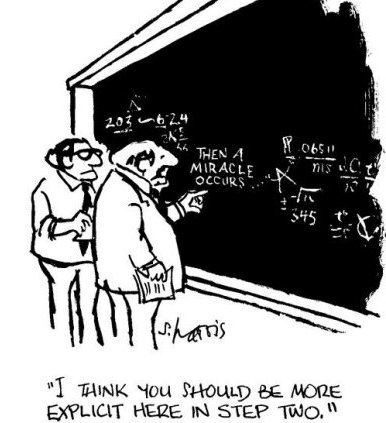What was most compelling to me personally is the raw mathematics involved in the supposition that random chance (however well assisted by some element/s of natural selection) could stumble upon the very specific sequences in DNA and/or polypeptides to arrive at something necessary for life.
I had been exposed to creationism in my younger years, but had (as I hope I still have) a very critical mind… in particular I remember someone making the argument about, “what are the odds that a single protein could come together by chance.” But at the time I distinctly recall thinking, “but given the evolutionary assumptions there were billions upon billions of opportunities over billions of years. The fact that something is improbable doesn’t mean it wouldn’t happen once given enough time. I remember thinking, “what are the odds that my license plate is QXR 8463 (or whatever it was) but hey, there it was.”
But recently upon reading Meyer’s “signature in the cell,” I realized the sheer magnitude of numbers we’re talking about. I stopped and worked out the math myself once I realized what was entailed, and gave the “unguided” hypothesis every advantage. I took a hypothetical 100acid length protein necessary for life… supposed that their were 1 quintillion (1,000,000,000,000,000,000) different variations of said protein that would still prove functional for said required biological function.
Then gave it all the time in the world (literally - 4.5 billion years x 31million seconds per year)… and assumed an ocean so full of amino acids that, every second of earth’s history a quintillion proteins of 100 acid length formed of random proteins, and multiplied all that by the time involved. In 4.5 billion years, this unguided process would have an astounding 1047 attempts of finding a protein with the required function. But given that there are ~ 10129 Possible variations of a 100 amino acid protein, this still leaves only a one in 1082 chance of finding said protein given the age of the earth. As I understand it, that’s around the number of atoms in the universe. So the odds of finding a single (smallish) necessary protein are roughly equivalent to choosing a single atom across the entire universe, then blindfolding Dr. Who, and giving him one chance to teleport anywhere in the known universe and see if he can, in one try, guess what atom you’ve picked. I had never actually done the math and was blown away - improbable is a gross understatement.
We could increase the possible functional variations of our desired protein to an octillion (1,000,000,000,000,000,000,000,000,000) or significantly more and the problem would remain.
This to me is what is most convincing to me, since you asked. Sorry for the long reply, brevity is not my strength.

